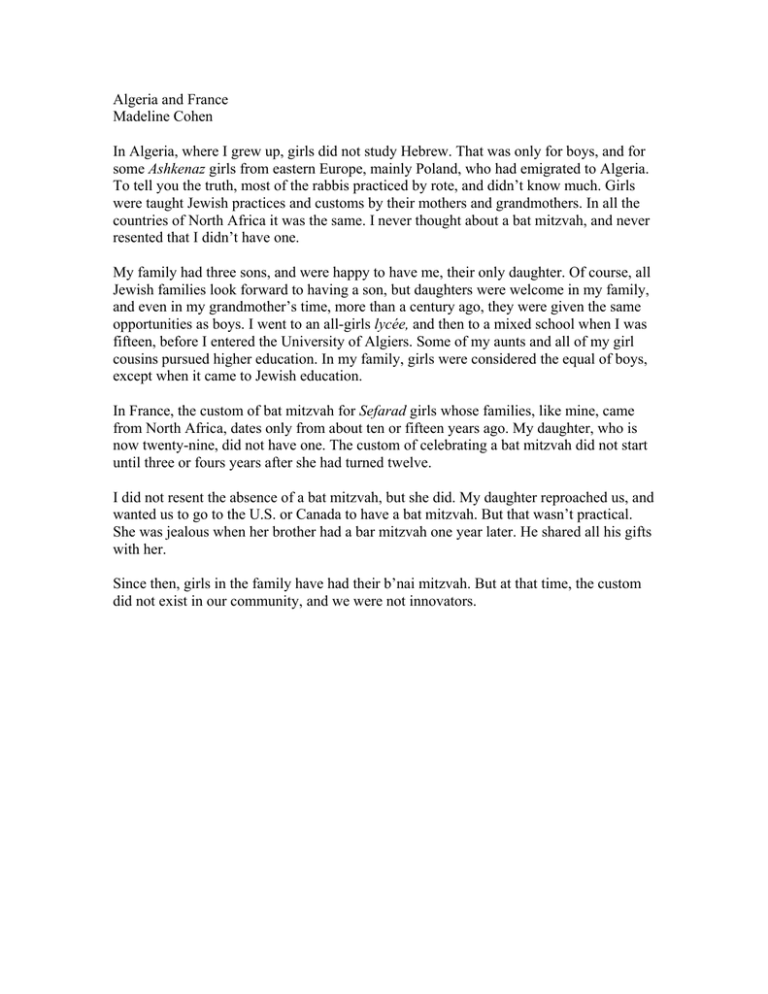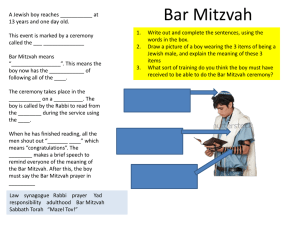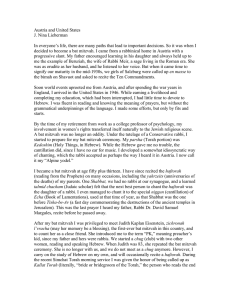Algeria and France Madeline Cohen
advertisement

Algeria and France Madeline Cohen In Algeria, where I grew up, girls did not study Hebrew. That was only for boys, and for some Ashkenaz girls from eastern Europe, mainly Poland, who had emigrated to Algeria. To tell you the truth, most of the rabbis practiced by rote, and didn’t know much. Girls were taught Jewish practices and customs by their mothers and grandmothers. In all the countries of North Africa it was the same. I never thought about a bat mitzvah, and never resented that I didn’t have one. My family had three sons, and were happy to have me, their only daughter. Of course, all Jewish families look forward to having a son, but daughters were welcome in my family, and even in my grandmother’s time, more than a century ago, they were given the same opportunities as boys. I went to an all-girls lycée, and then to a mixed school when I was fifteen, before I entered the University of Algiers. Some of my aunts and all of my girl cousins pursued higher education. In my family, girls were considered the equal of boys, except when it came to Jewish education. In France, the custom of bat mitzvah for Sefarad girls whose families, like mine, came from North Africa, dates only from about ten or fifteen years ago. My daughter, who is now twenty-nine, did not have one. The custom of celebrating a bat mitzvah did not start until three or fours years after she had turned twelve. I did not resent the absence of a bat mitzvah, but she did. My daughter reproached us, and wanted us to go to the U.S. or Canada to have a bat mitzvah. But that wasn’t practical. She was jealous when her brother had a bar mitzvah one year later. He shared all his gifts with her. Since then, girls in the family have had their b’nai mitzvah. But at that time, the custom did not exist in our community, and we were not innovators.






